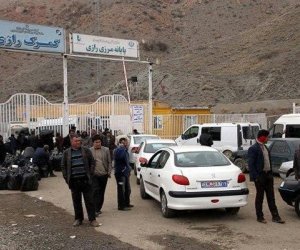Is China's economy really the largest in the world?

For the first time in more than 140 years, the US has lost the title of the world's largest economy - it has been stolen by China, according to the IMF. But how reliable are the statistics underpinning this claim? The BBC's economics editor, Robert Peston, explains lower down why China matters to all of us.
The Chinese economy is now worth $17.6 trillion, slightly higher than the $17.4 trillion the International Monetary Fund (IMF) estimates for the US.
So for the first time since 1872, when it overtook the UK, the US has been knocked off the top spot.
The IMF calculated these figures by using purchasing power parity (PPP) which enables you to compare how much you can buy for your money in different countries. As money goes further in China than in the US, the figure for China is adjusted upwards.
Without the PPP adjustment, the IMF estimates that China's economy is worth far less - $10.3 trillion.
But how much faith can be placed in the accuracy of GDP figures supplied by China when even the current premier, Li Keqiang has doubted their validity in the past?
A declassified US diplomatic cable revealed that in 2007, Li, who was then secretary general of Liaoning Province, had told the US ambassador that Chinese GDP statistics were "man-made" and "for reference only".
He points out that if you look at per capita spending power - the value of all goods and services produced within a nation in a given year divided by the average population for the same year - then, even adjusted for PPP, China ($11,868) is still lagging a long way behind not only the United States ($53,001) but also the likes of Turkmenistan ($12,863) and Suriname ($16,080).
So how easy is it to accurately measure the size of the Chinese economy or even just parts of it?
Not very, says Crabbe. "One of the key things that has to be understood is that distortions that happen at the village and provincial levels become amplified as they go out the statistical gathering chain.
"Year on year the GDP figures for each province grew faster than the national total, which logically and mathematically could not be."
He attributes part of this discrepancy to corruption but also says that inaccuracies became exacerbated by the sheer size of the country and the rate at which it was growing.
Inaccurate GDP figures can have serious consequences for companies that base investment decisions on them.
(BBC)
ANN.Az




































 Photo
Photo 



 Video
Video 

